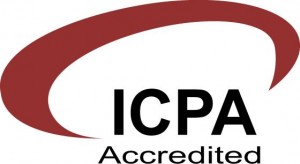First of all, let us be clear – Making Tax Digital will happen in one form or another. We have talked to several accountants who believe that the project will be scrapped due to cost, logistics or Brexit (or other political considerations), but as recently as 13th July 2018, HMRC has reiterated the current deadlines on the Government’s own website.
I think, however, what is up for debate is the eventual form that Making Tax Digital will take, the speed of its implementation and what facets of it will go live (and when). This is why I believe that Making Tax Digital is a journey, not a destination – accountants, taxpayers, and HMRC are all working towards a 21st Century approach to accounts submission and tax gathering, but the speed of technological implementation is such, don’t be surprised if MTD evolves mid-implementation.
If you think I am exaggerating, consider the recent partnership between Amazon and HMRC to use the former’s Echo devices and Alexa smart assistants to remind people about tax credits. Of course, this is at this stage more PR than process, but it has already led to headlines in the tabloid press such as “Alexa… Pay My Tax!”, which gives the impression to the general public that in the near future they will not even have to touch a keyboard (or even a touchscreen) to file their accounts with HMRC.
This is why, as a software developer, I am only looking to implement functionality to my accounting software packages as and when specified or needed by either HMRC or Accountants themselves. To do otherwise, would be costly, presumptive and potentially a waste of time, and that misspent development cost would have to be passed onto the end user… i.e. you, the accountant!
This is not meant to be a dig at other software developers or a sales pitch, but a statement of fact. It hopefully articulates an ethos that I think all concerned with Making Tax Digital would be wise to adopt, as it will result in a practical and effective adoption, and not failure or panic.
I suspect that despite my arguments above, many of you remain sceptical as to whether MTD will eventually see light of day, so let me give you another perspective. In a past life I worked in the City of London, trading energy derivative investments – buying low and selling high. Rather than attempt the impossible task of quantifying the impact of all the world’s events on the energy markets, we would identify a small number of major influencers – the fundamentals – and base our trading decisions on the impact of only these fundamentals. Yes, this approach did risk ignoring the impact of events that we didn’t consider to be major, but it made our decision process more clear – and we were right far more often than we were wrong. With this mindset, I think there are only three fundamentals that make MTD an inevitability:
- the UK Government needs to lower its overheads and become more efficient generally;
- the UK Government needs to increase its tax revenues;
- the UK Government doesn’t want to wait nearly two years (in some cases) to be paid the tax it is owed.
Given these three factors, Making Tax Digital is the Occam’s razor to take to all these problems as far as the Government is concerned. Electronic submission of taxes will mean (in theory) the automation of tax returns, which will lower the overheads and staff requirements of HMRC (saving the Government substantial amounts of money) and demanding quarterly payments of tax owed will address the Government’s own cash-flow and revenue forecasting problems. If you think there is another way for the Government to meet the objectives I think underpin the Making Tax Digital project, I would be interested to hear them.
As I have written before, I think Making Tax Digital provides a huge opportunity for accountancy as a sector and it shouldn’t be seen as a threat. However, remaining in denial about the inevitability of MTD will lead to the failure of your practice, because the accountancy world outside is changing as I write this, and you are not. The way you currently work will soon cease to be viable, so I genuinely urge all accountants who have yet to embrace the digital revolution to do so for their own sakes, and not just for the benefit of software developers like myself.
Making Tax Digital is not immediately going to be a panacea to all of HRMC’s problems nor does it necessarily mean extinction for an older generation of accountants (if they’re proactive), but it is a journey we’re all currently on with a final destination being a hazy landmark on the distant horizon. It is a journey we’ve all undertaken (either by choice or circumstance), and it is one I am glad to be on, and one that I want to enable others to make.
For more information about Prelude, e-mail info@preludeaccounts.com or call 0845 223 2170.





 Time is Money
Time is Money Encouraged by feedback from our users and customers, we have renamed Prelude Online as Prelude Accounts.
Encouraged by feedback from our users and customers, we have renamed Prelude Online as Prelude Accounts.